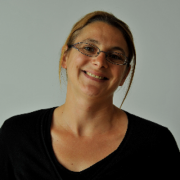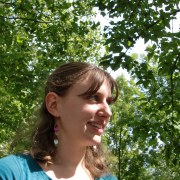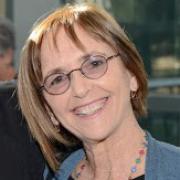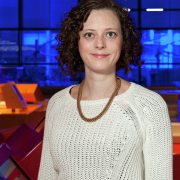Escape games: an inspiration for science communication?
Many artistic and cultural places are taking inspiration from escape games for the design of their exhibitions and hands-on activities in order to engage (young) audiences attracted by storytelling and gamified content.
In this session, we will like to explore how to adapt gamification to our main mission of science engagement. How do we find the right balance between entertainment and scientific content? How do our audiences react to this type of format in which they do not have and instructions and where the scientific content is not directly accessible? How do we deal with technical specifications, storytelling and scenography? If these new visitor experiences manage to attract new audiences to cultural institutions, can we measure their impact from a science engagement and science learning perspective?
Suggestion: attend the Escape room demonstration and practical session later on the same day.
Session speakers
Cap Sciences
Luminopolis is a 600sqm exhibition designed and produced by Cap Sciences, presented from 03 June 2017 to 21 May 2018. It is a new form of interactive exhibition inspired by the principle of escape games. The visitor, alone or preferably in a team, after being welcomed and put in condition in an immersion room by a Master of Luminopolis, enters the City of Lights and has to solve a number of puzzles in less than an hour to get out. This escape game can welcome 180 players together and relies on a powerful digital device that offers to follow in real time the route of each visitor.
Head of Exhibition and Education
The Swiss Science Center Technorama has developed two Escape Games centered on natural phenomena in collaboration with AdventureRooms. While solving the riddles the visitors do not only progress in the game but also get a chance to grasp the phenomena. In the session I will share our experiences and discuss the latest results from our user experience study with school classes.
Heureka
Heureka produced one standalone escape room -like exhibit called City without electricity in co-operation with the The Finnish National Rescue Association. The task is to go through three rooms and three days without electricity. Storyline is about two hackers that end up causing a power cut in their city – without preparing to it properly themselves. The visitors have two fairly easy tasks in each, very well decorated rooms.
Cité des Sciences et de l’Industrie – ‘La Chambre des Deux Infinis’ :
In ‘The Room of Two Infinities’, the visitors go off to explore the different scales of matter from our scale to one infinity, infinitely great or infinitesimal. They form teams of spatio-temporal agents that must pass by one last test to achieve their cosmic training.
Will they break through the mysteries of atoms and stars to upgrade to the last step of their training? And will they distinguish images built by special effects from real ones?
The room can welcome 24 persons in a session and will be opened from October 2017, the 21th to August 2018. It is also adapted to receive classes.
Lecturer in Science Education
University of Southampton
I have been involved in the building of a number of science escape room formats ranging from an exhibition-turned-escape room in a small science centre, to an ad hoc escape room for science festivals and a mobile escape unit that reaches out to schools. In the session I will discuss the pros and cons of the different formats and how they were received by the escape room participants.
Chemistry Teacher and Trainer
Katzir High School and Weizmann Institute of Science
Malka is an expert in bringing difficult chemistry knowledge to the general public in a fun and experiential way. Malka will discuss her experiences in creating a mobile escape room unit called "Chemical escape" is an activity for high school students that brings the extremely popular genre of "escape rooms" into the chemistry classroom. In a project by the National Chemistry Teachers' Center at the Weizmann Institute of Science in Israel, a mobile escape room was designed and built to provide outreach to secondary schools.
Contemporary Science Events Project Leader
Escape games were just one of the many creative activities commissioned by the Science Museum to celebrate the 200th anniversary of Mary Shelley's Frankenstein. Led by a facilitator, visitors had to solve puzzles in order to escape and ultimately decided whether they wanted to create a creature and bring it to life. This interactive feature was just one of the ways employed to get visitors thinking about the moral and ethical implications of creating life.







